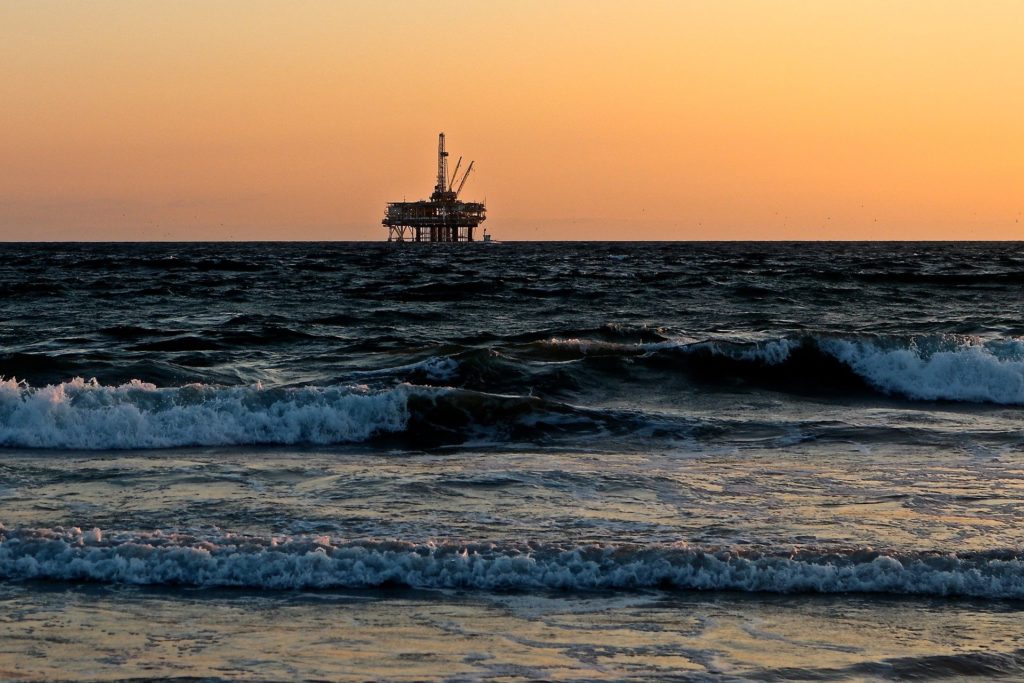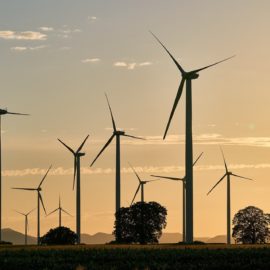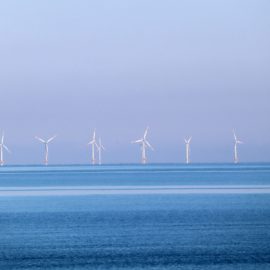
Nothing is more beautiful than an oil rig in the Gulf. We need more of them even if many are not being used. We also dont need renewables as we are an oil state and oil meets our needs. Or at least that is what some people stuck in the past think.
While many have been quick to blame the Ukraine crisis for today’s high gas prices, the reality is more complicated. Even before Vladimir Putin’s Russian forces launched their invasion, leading President Joe Biden to ban Russian energy imports, gas prices in the U.S. had reached the highest since 2008 and crude oil was expected to reach $150 a barrel. The real culprit? America’s high level of dependence on foreign oil and gas and our reluctance to fully unleash U.S. energy production. With Russian oil now off the table, who will continue to meet America’s tremendous need for secure energy supplies? Last year alone, we imported 672,000 barrels of oil and refined products a day from Russia. About half went to the West Coast, where refiners are reliant on overseas oil because they aren’t connected by pipelines. Another quarter was delivered to East Coast locations where many refiners are also disconnected from top sources of U.S. oil production. Despite our significant energy appetite, the U.S. is still looking for answers.
theadvocate.com
I thought we exported oil and gas? Maybe not. I thought that there were leases not being used. I guess not. The only answer is more drilling. A broken record.
President Biden has looked for answers too, turning to our Strategic Petroleum Reserve (SPR). He has pulled from the SPR twice since December, a temporary solution that barely put a dent in rising gas prices. The president is reportedly personally courting Venezuela, Iran, and potentially Saudi Arabia as sources for more oil, meaning the administration could be looking to replace oil from one geopolitically volatile location from others of the same ilk. The better and longer-term solution? Increase production here at home, in part by renewing the Interior Department’s five-year offshore leasing plan, set to expire in June unless the Biden Administration acts. Without action soon, the program will experience an unprecedented stall. This means no federal offshore lease sales can be held, jeopardizing activities in Louisiana, Texas, and other Gulf and Atlantic Coast states that have been extremely prosperous. In addition to producing approximately 15% of U.S. crude oil and 2.3% of natural gas, this offshore access supports more than 325,000 American jobs and generates billions in annual revenue. Such leases are particularly important in Louisiana, where oil and gas constitutes 23% of GDP.
The benefits of drilling far exceed just the energy. Just imagine what we can do with that money.
Just as important, these leases send hundreds of millions to coastal states for education, infrastructure, and conservation projects. According to the Congressional Research Service, these revenues provide “most or all of the funding” for the Land and Water Conservation Fund (LWCF), the Historic Preservation Fund (HPF), and the National Parks and Public Land Legacy Restoration Fund (LRF). Sadly, this situation isn’t improving. In March, a court denied a massive offshore lease sale in the Gulf of Mexico. The U.S. Court of Appeals for the District of Columbia Circuit specifically denied speeding up an appeal to the November lease sale, meaning 80 million acres for drilling sits unused. That led Louisiana officials to support appealing the denial of the offshore lease sale, as they warned that failure to renew offshore leasing would cause economic devastation. Further, the Louisiana Mid-Continent Oil and Gas Association warned the Interior Department last year that pausing federal leasing in the U.S. could endanger an estimated $389 million in revenue to combat coastal erosion.
He is talking about democrats now as we are the ones blocking oil and gas. In fact they think the President killed oil. Notice no renewables mentioned yet.
Standing in the way of U.S. energy production is an unfortunate pattern. The president placed a moratorium on federal land leasing for domestic oil and gas resources, a move that essentially ensures our dependence on foreign sources over domestic supply. Instead of encouraging more home-grown oil and gas supplies, some Biden administration officials are arguing for an increased focus on renewables, wrongfully dismissing claims that more domestic fuel production will lower oil prices. Energy resources from the Gulf of Mexico aren’t just lower-carbon alternatives to foreign oil, as an Obama era Interior Department report found, but they’re the key to creating the kind of energy security and stability Americans want and deserve. Instead of delaying, the Biden Administration should move swiftly and decisively to renew the 5-year offshore leasing program, creating a practical long-term solution for securing the energy resources we need to power America’s future.
Charlie Melancon, a former Democratic member of Congress and Louisiana Secretary of Wildlife and Fisheries, now works with the Grow America’s Infrastructure Now (GAIN) Coalition. He wrote this article and I guess his views might have changed.



